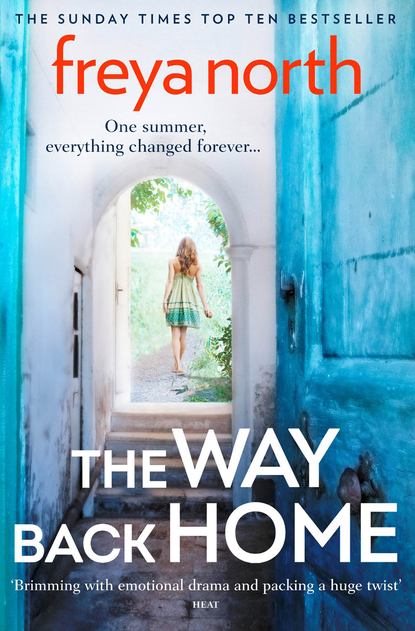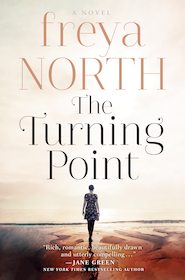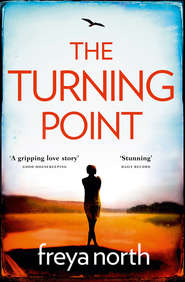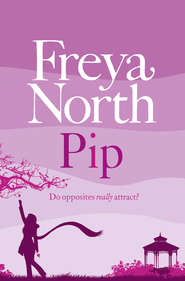По всем вопросам обращайтесь на: info@litportal.ru
(©) 2003-2024.
✖
The Way Back Home
Автор
Год написания книги
2018
Настройки чтения
Размер шрифта
Высота строк
Поля
Even in the car, Oriana knew she could change her plans and simply turn up at Cat’s. Or go shopping at Meadowhall. Or reacquaint herself with Bakewell. Belper. Baslow. Eyam. Anywhere. Or just turn round and go nowhere. And yet no one, apart from Ashlyn, knew she was visiting Windward. She could just go there, drive in, drive out. Never step out of the car. No one would be any the wiser. A secret journey. And so she set off, travelling south, retracing the route she’d journeyed three weeks before.
She concentrated on the road, on the sound of the engine, the milometer racking up, the petrol gauge barely moving – dear little car. Would she turn right and go to Blenthrop? Perhaps just park in the car park and sit for a while? She drove on. Or – she could pull in just here, in the lay-by. Stretch her legs and fill her lungs and then decide whether it was really worth carrying on, all the way to Windward. But on she drove.
Eighteen years.
Whereas the sight of Blenthrop had disarmed her three weeks ago, this route back to Windward was as familiar as if she’d made it daily with no interval. As she neared, it seemed everything came into even sharper focus, even the coping stone still lying half hidden in goose grass at the foot of the left gate pillar. She indicated. She turned up the driveway. This was the first time she’d ever done so. She’d left Windward before she learned to drive.
You can’t see the house yet. You have to follow the private road a little way on, she told herself; poker straight until the sudden sweep to the right reveals the house, sitting sedate and solemn and magnetic. Peach-pale stone, seen as so extravagant and modern in 1789, when the Jacobean manor house was demolished and the current Georgian mansion was built. For the first time Oriana noticed the peculiar sight of neatly parked cars either side of the expansive gravelled sweep in front of the house, the vehicles positioned like ribs, like fish bones. And suddenly memories of last night’s cod brought with it a surge of nausea and a clammy coldness swept over her. She placed her forehead on the steering wheel.
What on earth am I doing here? This place makes me feel ill.
A sweep of memories kept at bay for so long: the day she was made to leave, the occasions she’d tried to return. The address bold in her bubbled teenage handwriting on letters she’d never posted. That day, that terrible day when she’d been fifteen.
Oriana wasn’t sure how long she’d been sitting there but suddenly she was aware of an audience, and she raised her head just enough to see two small girls peering in through the car window. They smiled and waved and she raised her hand half-heartedly. The younger girl pressed her palm against the glass and looked at Oriana earnestly, as if she felt she’d found someone trapped, waiting to be rescued. Reluctantly, she put the window down.
‘Hi,’ said the elder girl. ‘I’m Emma. You can call me Ems.’
‘And I’m Kate,’ said the smaller one. ‘I’m five.’ She splayed out one hand for emphasis.
‘I’m –’ Oriana thought about it. ‘Incognito’ might be prudent but they might not know the word. ‘I’m Binky.’ It was the first name that came into her head. Thank God it was two young girls she was lying to. The name sat perfectly well with them.
‘Are you visiting someone?’
‘Sort of,’ said Oriana, getting out of the car and closing the door thoughtfully. Do people lock their cars now, she wondered. She glanced at the other vehicles. Mercedes. BMW. Range Rover. They probably lock them.
‘We live in the Ice House,’ the little one, Kate, said.
‘The Ice House?’ said Oriana and Kate pointed across the cherry-walk lawn.
The shack is called the Ice House? Someone lives in the shack?
‘We’re sisters,’ said the elder. ‘I’m Emma and I’m eight.’
‘Our mum is called Paula and our dad is called Rob,’ said Kate in a tone of voice which suggested she’d had to repeat this often. But Oriana was only half listening, moving slowly away from the children, ignoring their chatter, gravitating towards the house whether she wanted to or not.
‘Well, bye,’ Emma was saying.
‘See you later, alligator,’ Kate called after her.
Suddenly, the girls were in the very periphery of Oriana’s consciousness and she did not respond.
She’s not very friendly, the girls concurred. We’ll not be inviting her to our place. We’ll not introduce her to our mum.
Eighteen years. A little over half her life. Instantly, her adulthood was condensed and reduced to a flick of light-speed separating the time when she was last here from now. The new cars – they were incongruous; as unbedded and jarring as a new and overly ornamental shrubbery might be in an overgrown garden. But the house – it was wonderfully, frighteningly, unchanged. Everything was recognizable and known. The mineralized rust around the leaking rain hopper which she always thought would be soft and slimy to the touch until she’d shinned up the drainpipe at twelve years old and found it to be hard and cold. The cracked pane in the fanlight above the front door. The chunk of stone missing from the base of the pillar of the portico, like a wedge of cake stolen. The strangulating cords of wisteria claiming the walls as their own, the defensive march of rose bushes skirting the house.
She started circumnavigating the building. Everything, denied for so long, felt forbidden. She moved lightly, quickly, holding her breath.
The familiar feel of the gravel underfoot.
The sound of it.
Tiptoe.
As in a dream, strange new details distorted the old reality. Curtains where there hadn’t been, now framing the windows of what had been the illustrator Gordon Bryce’s flat on the second floor. The customary tangle of flung bikes by the stone steps leading down to the cellars – but Oriana’s wasn’t amongst them. And no brambles by the yard. Instead, a residence now converted from the stables with an Audi parked outside on uniform cobbles.
Where do you play hide-and-seek these days then?
Oriana walked straight past her own front door at the side of the building, without once turning her head to acknowledge it. She was vaguely aware of the velvety-leaved pelargoniums in their soil-encrusted terracotta pots currently on the inside windowsills, where they’d be for another month or so before enjoying their summer sojourn out of doors. But she turned deaf ears to any sound that might seep through the gaps in the window frames. Those hateful old frames through which the icy breath of winter would slice into her sleep and the wasps in the summer would sneak in and target her.
Suddenly she heard it. The groan and creak of the great old cedar of Lebanon. She hurried ahead, towards the grounds at the back of the house and finally it came into view.
No one climbs me the way you used to, Oriana. The children are different these days. They play in different ways.
She walked quickly to the tree, crept under its boughs and up to the trunk. There, behind its protective barrier of branches welcoming her back into its fold once again, she wept.
CHAPTER SEVEN (#ulink_b989d595-baf9-5bfb-9607-4cece66d8a62)
Tick tock. Eleven o’clock. Fuck me, thought Jed, why do I always oversleep when I’m here? He looked around the room, once his bedroom, and wondered why. It wasn’t even his bed any more; Malachy had sensibly replaced it with a sofa bed when he’d converted the room. Nothing of Jed’s past was visible. A couple of Robin’s small oils and four old framed prints of Derbyshire landscapes replaced the Cure and the Clash who’d once papered the walls alongside Echo and the Bunnymen. There was no sound from any of them anymore, Jed’s towers of vinyl LPs replaced long ago by CD versions which themselves had since been condensed further into virtual MP3 files. The walls were now uniformly white – whereas he’d painted all five of them in different hues. Red, black, purple, navy, orange. If he lifted the new carpet, the floorboards would still bear the spatters as evidence.
He stared at the ceiling; the long, snaking crack which his eyes had traversed for so many years while music played and his mind whirred with teenage emotion, was now Polyfillaed into a slightly raised scar. The huge paper lantern shade had gone, replaced with a neat, dimmable, three-light unit. When his parents had moved to Denmark a decade ago, they had signed the apartment over to him and Malachy. Jed had persuaded his brother to take on a mortgage and buy him out so that he could purchase his own place. Malachy was thus within his rights to make any changes he wished and the room had been sensibly, sensitively converted. Jed didn’t mind at all because, whatever the title deeds might say, this room was unmistakably his space and he always slept like a log here.
He showered and dressed, begrudgingly made a mug of instant coffee and took a pot of Greek yoghurt from the fridge, dolloping in honey from a sticky jar retrieved from the back of the cupboard. He thought, my brother’s fridge is empty save for beer and Greek bloody yoghurt. It wasn’t just a bit pathetic. Apart from the order and spryness of the spare room, the rest of the place was forlorn and dusty and the kitchen was a disgrace. And yet, of the two of them, Malachy was the together one, with the common sense and the poise and maturity, who avoided drama even if it made life dull.
‘Thieving cleaner-shag aside, of course,’ Jed murmured, taking a yoghurt through to the sitting room. Once the ballroom, its full-height windows flooded the room with spring sunlight, revealing just how in need of a clean they were while dust danced across the air with a we-don’t-care. Automatically, Jed glanced at the piano and yes, Malachy had indeed left him a message. He hadn’t bothered to check his phone: it wasn’t his brother’s style to text. Or to push a note under the bedroom door or stick it to the bathroom mirror or fridge. The piano had always been the place where messages were left.
J. We need food. M.
Two twenty-pound notes were stapled to the paper.
Jed grimaced at the bitter scorch of instant coffee masquerading as the real thing. He phoned the gallery.
‘Where the fuck is your coffee machine?’
‘It broke.’
‘OK. But where is it? I’ll fix it.’
‘I binned it. It smashed beyond repair when Csilla dropped it when she was stealing it.’
‘Oh. Shit. Sorry – I.’
‘I’m kidding, Jed. But I did bin it because it broke.’
‘Don’t you have a cafetière? For emergencies?’
‘No.’ Malachy paused. ‘I do have an old, stove-top coffee maker somewhere – but you’ll have to hunt for it.’
‘Thank Christ for that,’ said Jed, hanging up.











